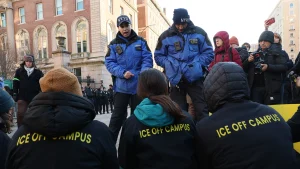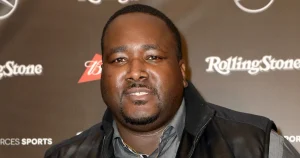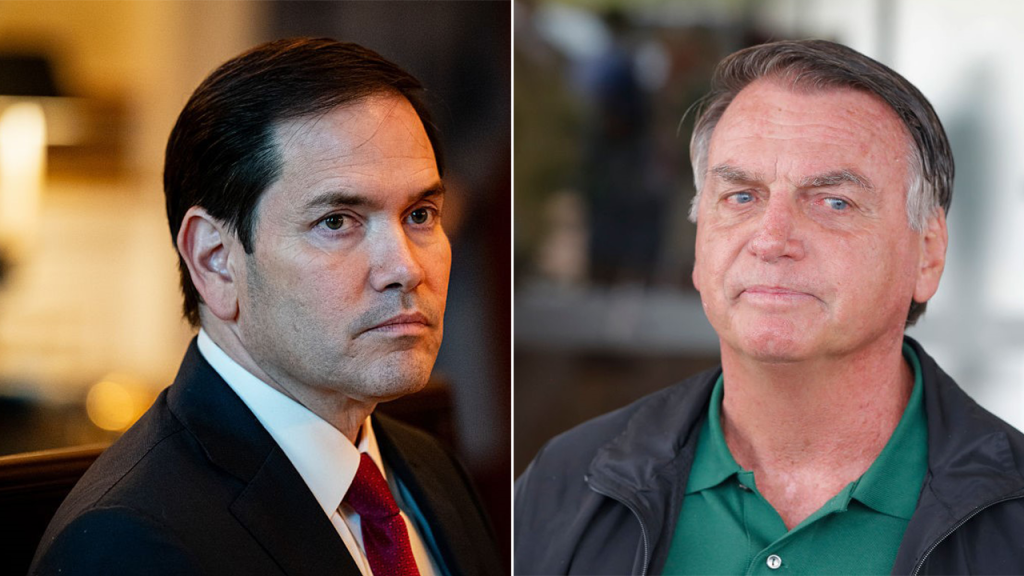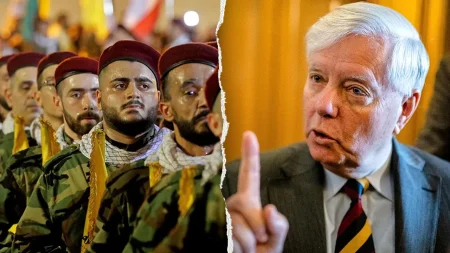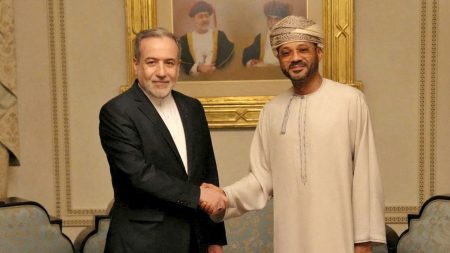U.S. Diplomatic Tensions Rise After Brazil’s Bolsonaro Conviction
In a developing diplomatic standoff between the United States and Brazil, Secretary of State Marco Rubio has signaled that the U.S. will respond to what he characterized as an unjust conviction of former Brazilian President Jair Bolsonaro. On Thursday, Brazil’s Supreme Court sentenced Bolsonaro to over 27 years in prison for allegedly plotting a coup following his electoral defeat in 2022. Rubio described the proceedings as a “witch hunt” led by Justice Alexandre de Moraes, whom the U.S. has already sanctioned for alleged human rights abuses. The Secretary’s comments, made via social media, have sparked significant pushback from Brazil’s Foreign Ministry, which accused the U.S. of attacking Brazilian sovereignty and ignoring substantial evidence in the case. The Ministry firmly stated that Brazilian democracy would not be intimidated by pressure from the American government, setting the stage for what could become a serious diplomatic rift between the two Western Hemisphere powers.
The case against Bolsonaro has deep political implications that extend beyond Brazil’s borders, particularly given his close alliance with former and current U.S. President Donald Trump. Upon learning of Bolsonaro’s conviction, Trump expressed support for his Brazilian counterpart, drawing parallels to his own legal challenges in the United States. “I watched that trial. I know him pretty well. I thought he was a good president of Brazil, and it’s very surprising that could happen very much like they tried to do with me,” Trump told reporters. The American president has previously criticized Brazil’s judicial system over its handling of Bolsonaro’s case, even implementing punitive economic measures in response. In July, Trump imposed 50% tariffs on most Brazilian imports, explicitly framing the action as a response to what he called a “witch hunt” against Bolsonaro, though he later exempted certain products including passenger vehicles and aircraft components.
The U.S. response to Bolsonaro’s legal troubles has already manifested in concrete diplomatic actions. Secretary Rubio announced visa revocations for Justice Alexandre de Moraes, who presided over Bolsonaro’s case, along with his allies on the court and family members. This punitive measure came after the Brazilian Supreme Court issued search warrants and restraining orders against Bolsonaro. More dramatically, the U.S. Treasury Department sanctioned Justice de Moraes over allegations that he authorized arbitrary pre-trial detentions and suppressed freedom of expression. These steps represent an unusual level of intervention by the U.S. government into the judicial proceedings of another democratic nation, particularly one that has traditionally been an important regional ally. The sanctions suggest that the Trump administration views Brazil’s prosecution of Bolsonaro not as a legitimate legal process but as politically motivated persecution.
Eduardo Bolsonaro, the former president’s son and a current member of Brazil’s Congress, has indicated that he expects further American sanctions against Brazilian justices following his father’s conviction. “We are going to have a firm response with actions from the U.S. government against this dictatorship that is being installed in Brazil,” he told Reuters. Eduardo Bolsonaro specifically warned that justices who voted to convict his father could face sanctions under the Magnitsky Act, a powerful U.S. law originally designed to punish Russian officials responsible for the death of tax accountant Sergei Magnitsky but later expanded to target human rights abusers worldwide. “If these Supreme Court justices keep following Moraes, they also run the risk of facing the same sanction,” the younger Bolsonaro cautioned, suggesting a coordinated approach between the Bolsonaro family and their allies in the U.S. government to pressure Brazil’s judiciary.
The conviction itself centers on serious allegations that Bolsonaro conspired to prevent the peaceful transfer of power after losing the 2022 election to Luiz Inácio Lula da Silva. Brazil’s Supreme Court determined that Bolsonaro attempted to orchestrate a coup that would have prevented Lula from taking office in January 2023. The 27-year prison sentence handed down by the court reflects the gravity with which the justices viewed these allegations. For many Brazilians who support the conviction, the case represents an important defense of democratic institutions and norms, particularly the fundamental principle that election results must be respected regardless of which candidate prevails. The Brazilian government’s firm response to U.S. criticism underscores its position that the judicial process was based on “compelling evidence” rather than political motivation.
The escalating tension between the United States and Brazil over the Bolsonaro case has significant implications for regional diplomacy and democratic governance. By framing Brazil’s legal proceedings as political persecution and responding with economic and diplomatic penalties, the U.S. has inserted itself directly into Brazil’s internal affairs in ways that challenge traditional norms of state sovereignty. At the same time, Brazil’s insistence on the legitimacy of its judicial process and its rejection of external pressure reflects a commitment to defending its institutions against what it perceives as unwarranted foreign interference. As both nations navigate this complex diplomatic terrain, the outcome may establish important precedents for how democracies interact with one another when their interpretations of democratic principles and procedures diverge. The case also highlights the increasing internationalization of domestic political conflicts, with supporters and opponents of populist leaders increasingly seeking allies and validation beyond their own borders.
